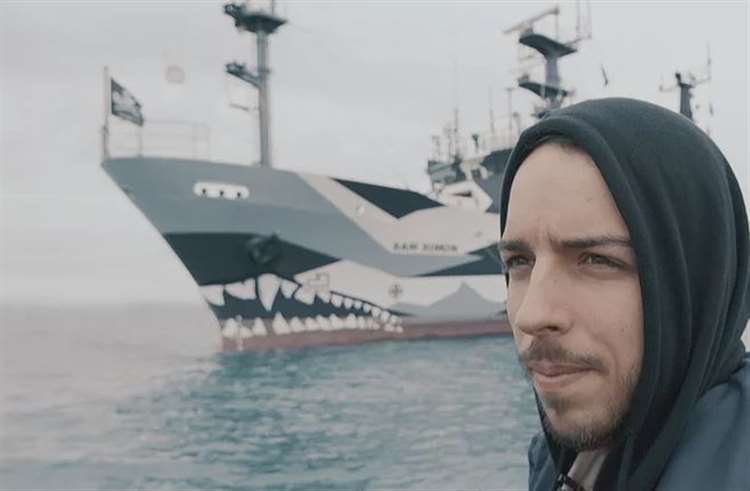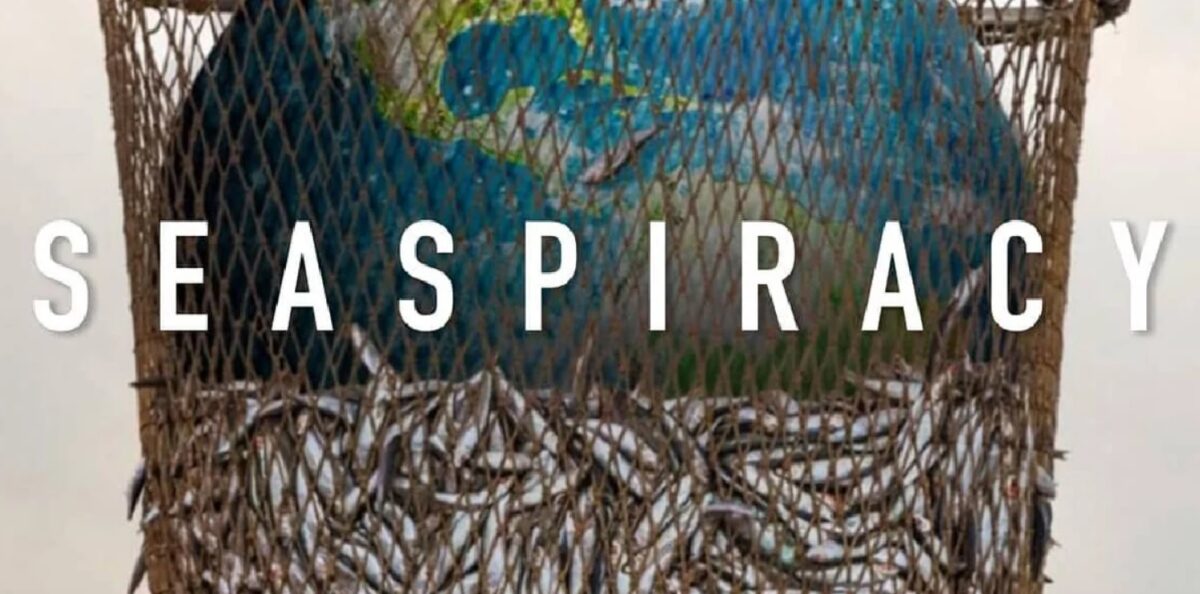Scandal, slavery, murder – is this a The God Father, or an environmental documentary? In Seaspiracy, Ali Tabrizi shines a light on the corruption running rampant in the global fishing industry. The issues that are surfaced are particularly shocking because so much of the activity occurs underwater, or so far offshore that it’s well out of sight. By seeking out what actually happens in these waters, Tabrizi strikes a chord with viewers, drawing their attention to outrageous business practices that are taking place right under their noses. The film is fascinating and informative, but also inspiring and convincing, calling on viewers to revisit their diets and advocate for political reform.

What is Seaspiracy About?
Seaspiracy examines the global fishing industry, challenging notions of sustainable fishing, and illustrating how humans have caused widespread environmental destruction.
Filmmaker Ali Tabrizi has always loved the ocean, but he couldn’t believe the negative impact that people have had on the seas. He attempts to identify possible solutions to save the oceans from overfishing, plastics, and other forms of waste. In doing so, he learns that the same criminals behind drug trafficking and human trafficking are also playing a huge role in destroying marine ecosystems.
Environmental Destruction and Corruption
The problems that are surfaced in this film will completely change the way you look at seafood. Take ocean pollution, for example. If you were to dissect the components of the Great Pacific Garbage Patch, almost half of it would be made up of discarded fishing nets, likely from commercial fishing. Now let’s look at dolphin-safe tuna labels, which apparently don’t actually guarantee that dolphins went unharmed. The organization that grants this license occasionally has observers go onboard ships to ensure compliance with local laws and policies that minimize dolphin fatalities from by-catch. However, the observers are not always onboard, and even the representative being interviewed acknowledged that observers can always be bribed.
You might be interested in: Zac Efron Wants You to Start Caring About the Planet
And when they aren’t bribed? Well, sometimes observers conveniently go missing. Some hypothesize that they get thrown overboard if they’ve seen too much. As you can tell, there’s some really dark stuff going on in commercial fishing. Stories of kidnapping, murders, slave labor, human rights abuse, dead bodies stored in freezers… The terrifying thing is that there’s no way of knowing whether the sushi you’re eating for dinner came from an operation like that. Isn’t that something you’d want to know?
Embed from Getty ImagesHow We Can Protect the Oceans
Tabrizi lays out a few clear recommendations to protect and support marine life and our oceans. Looking at the Content Impact Matrix, we can see how he activates each of the major types of change agents: Cultural, political, and economic.
- Shift to a plant-based diet (Cultural / Food). How do you fight against commercial fishing? Reduce demand for fish. In addition to your usual vegan food options, you might also want to explore plant-based seafood alternatives.
- Establish and enforce no-catch marine reserves (Political / Regulation). Marine ecosystems recover rapidly, so enforcing marine reserves could be wildly impactful. Tabrizi advocates for protecting 30% of our oceans by 2030.
- End fishing subsidies (Economic / Trade). $35 billion is spent each year on fishing subsidies, which artificially reduce the price of fish. Ending fishing subsidies makes fish more expensive. You know what that means: Less demand for fish.
Why Seaspiracy Was So Effective
Documentaries often fall into one of two traps:
- The documentary is boring as hell, so nobody watches it
- The documentary is stale; the information is well known, so it only serves to validate popular belief
Seaspiracy manages to avoid both of these traps. Tabrizi’s storytelling is engaging, but he also dives deep into an aspect of environmentalism that far too often goes overlooked. After all, it’s easy to see why. Commercial fishing is a huge business, so why would they go out of their way to clean up their act when that would infringe on their profit margins? Why would they go out of their way to clean up their act when they can bribe the regulators to turn a blind eye? In fact, I’m surprised they didn’t attempt to pay off Tabrizi to prevent him from ultimately releasing this film.

When someone thinks about protecting our environment, they probably think about plastic straws or shopping bags. Some people will even think about seafood as an environmentally friendly alternative to other forms of meat. However, all of that is just a distraction. If you’re going straw-less and using reusable shopping bags, by all means, keep going. But don’t forget that in the grand scheme of things, they’re only a tiny, miniscule, contributing component of ocean pollution.
Society believes that the oceans are being destroyed by one thing, but the reality is something vastly different. Seaspiracy identifies and elevates that deep dissonance, and that’s what makes it so impactful.
